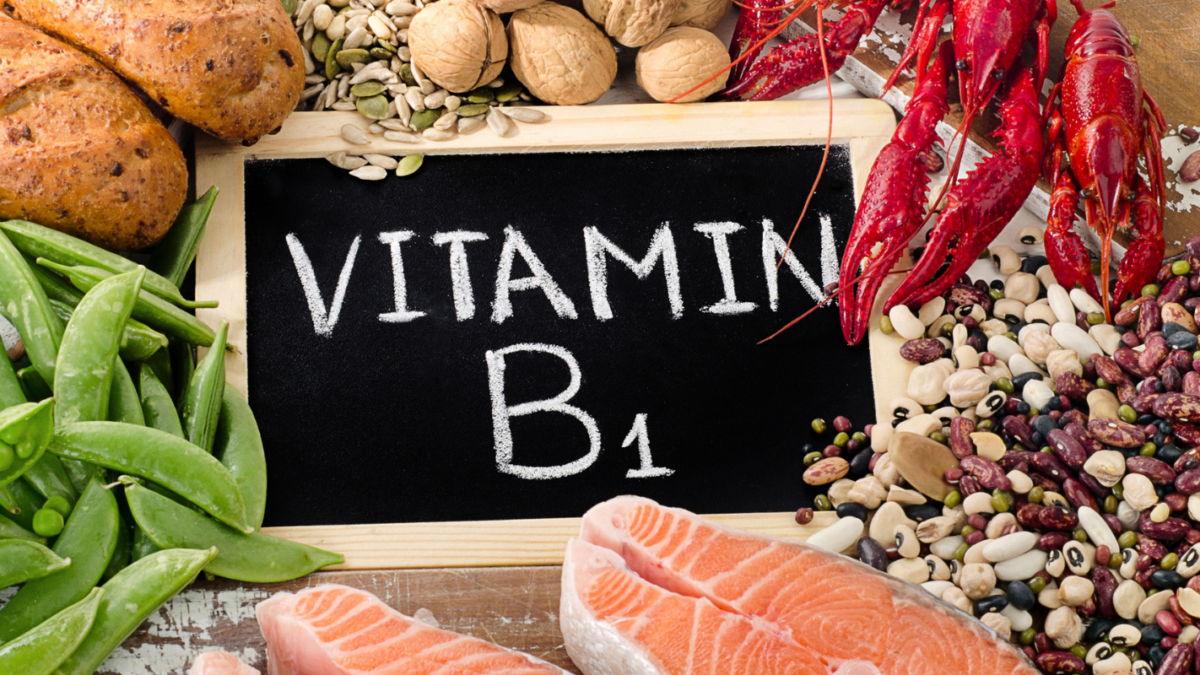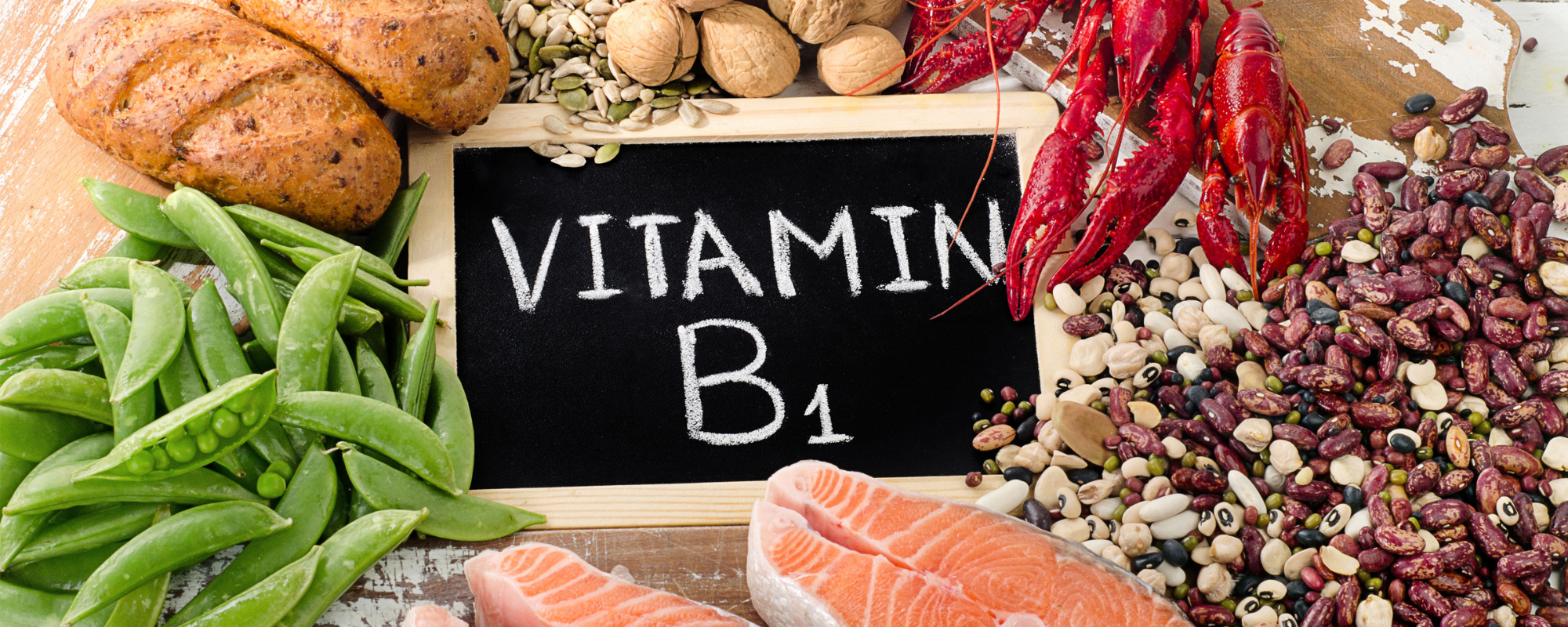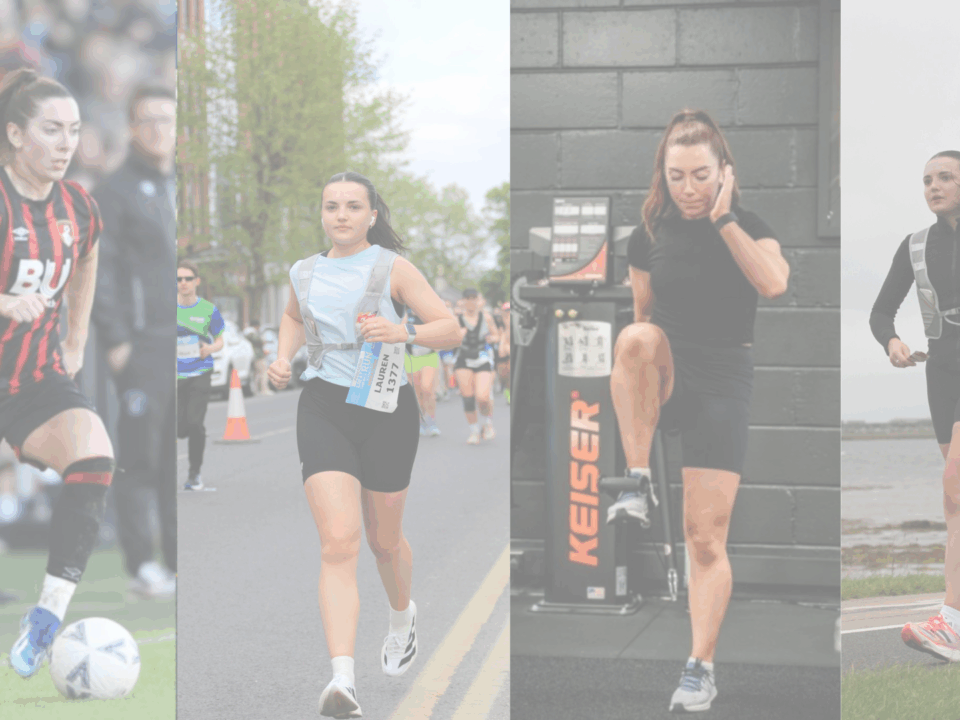
Berry Bars
May 15, 2024
3 Top Tips to help with your Fat Loss Journey
May 16, 2024
Berry Bars
May 15, 2024
3 Top Tips to help with your Fat Loss Journey
May 16, 2024Vitamin B1 (Thiamin)
What is Vitamin B1?
Vitamin B1, also known as Thiamin, is a water-soluble vitamin that plays a crucial role in energy metabolism and the proper functioning of the nervous system.
Why do we need Vitamin B1?
- Energy Metabolism.
- Neurotransmitter Synthesis: plays a role in the transmission of nerve signals.
- DNA Synthesis.
- Heart & Muscle Function.
3 Foods Richest in Vitamin B1?
- Pork
- Whole Grains (brown rice, whole wheat, oats)
- Legumes (beans, lentils)
Daily Recommended Intake:
For adults, the recommended daily allowance (RDA) of vitamin B1 is 1.1-1.2 milligrams per day.
Practical Examples:
- Pork (85g) = 0.7mg of Vitamin B1
- Brown Rice (195g cooked) = 0.2 mg of Vitamin B1
- Sunflower Seeds (35g) = 0.4mg of Vitamin B1
- Whole wheat Bread (1 slice) = 0.3mg of Vitamin B1
Symptoms of Vitamin B1 Deficiency:
A deficiency in Vitamin B1 can lead to a condition called beriberi. There are two main types of beriberi: wet beriberi, which affects the cardiovascular system, and dry beriberi, which primarily impacts the nervous system. Symptoms include:
- Fatigue and Weakness.
- Muscle Weakness & Pain.
- Difficulty Breathing: In cases of wet beriberi.
- Swelling (Edema): Wet beriberi may also cause fluid retention and swelling in the legs, ankles, and feet.
- Cardiovascular Issues: increased heart rate, palpitations & potential cardiovascular complications.
- Numbness & Tingling: especially in the hands and feet.
- Confusion & Memory Impairment.
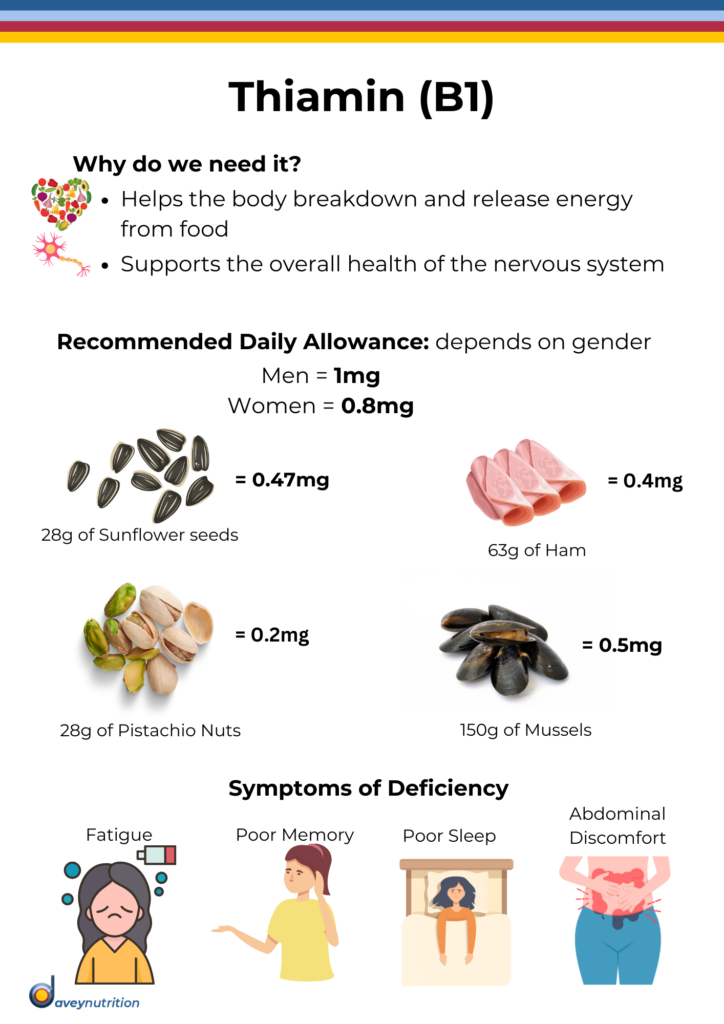
Download this factsheet – Thiamin (B1) Factsheet
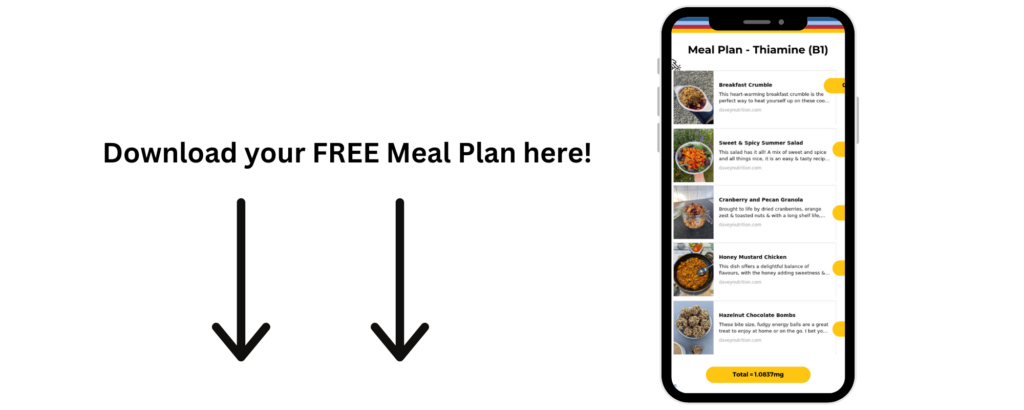
Want to ensure you’re getting enough Vitamin B1 in your day? Check out our FREE MEAL PLAN:
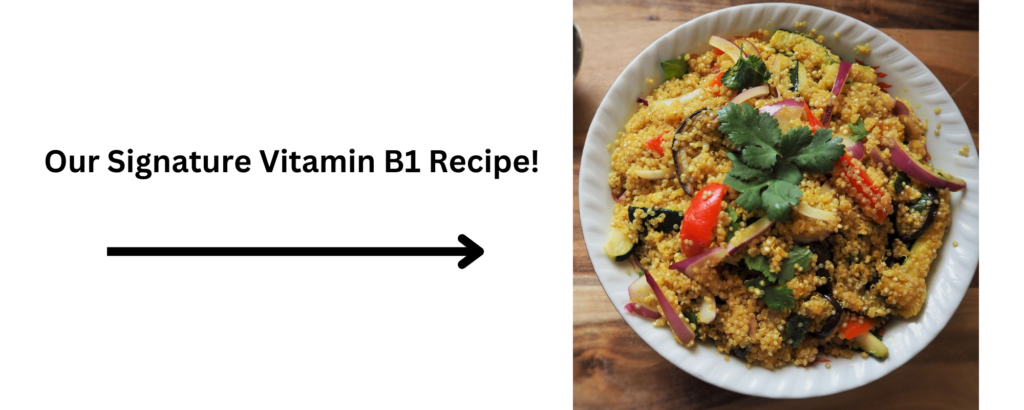
Check out our signature Vitamin B1 recipe here – Quinoa Super Salad
Vitamin B1 (Thiamin)
What is Vitamin B1?
Vitamin B1, also known as Thiamin, is a water-soluble vitamin that plays a crucial role in energy metabolism and the proper functioning of the nervous system.
Why do we need Vitamin B1?
- Energy Metabolism.
- Neurotransmitter Synthesis: plays a role in the transmission of nerve signals.
- DNA Synthesis.
- Heart & Muscle Function.
3 Foods Richest in Vitamin B1?
- Pork
- Whole Grains (brown rice, whole wheat, oats)
- Legumes (beans, lentils)
Daily Recommended Intake:
For adults, the recommended daily allowance (RDA) of vitamin B1 is 1.1-1.2 milligrams per day.
Practical Examples:
- Pork (85g) = 0.7mg of Vitamin B1
- Brown Rice (195g cooked) = 0.2 mg of Vitamin B1
- Sunflower Seeds (35g) = 0.4mg of Vitamin B1
- Whole wheat Bread (1 slice) = 0.3mg of Vitamin B1
Symptoms of Vitamin B1 Deficiency:
A deficiency in Vitamin B1 can lead to a condition called beriberi. There are two main types of beriberi: wet beriberi, which affects the cardiovascular system, and dry beriberi, which primarily impacts the nervous system. Symptoms include:
- Fatigue and Weakness.
- Muscle Weakness & Pain.
- Difficulty Breathing: In cases of wet beriberi.
- Swelling (Edema): Wet beriberi may also cause fluid retention and swelling in the legs, ankles, and feet.
- Cardiovascular Issues: increased heart rate, palpitations & potential cardiovascular complications.
- Numbness & Tingling: especially in the hands and feet.
- Confusion & Memory Impairment.

Download this factsheet – Thiamin (B1) Factsheet

Want to ensure you’re getting enough Vitamin B1 in your day? Check out our FREE MEAL PLAN:

Check out our signature Vitamin B1 recipe here – Quinoa Super Salad
Upgrade NOW
Upgrade NOW


